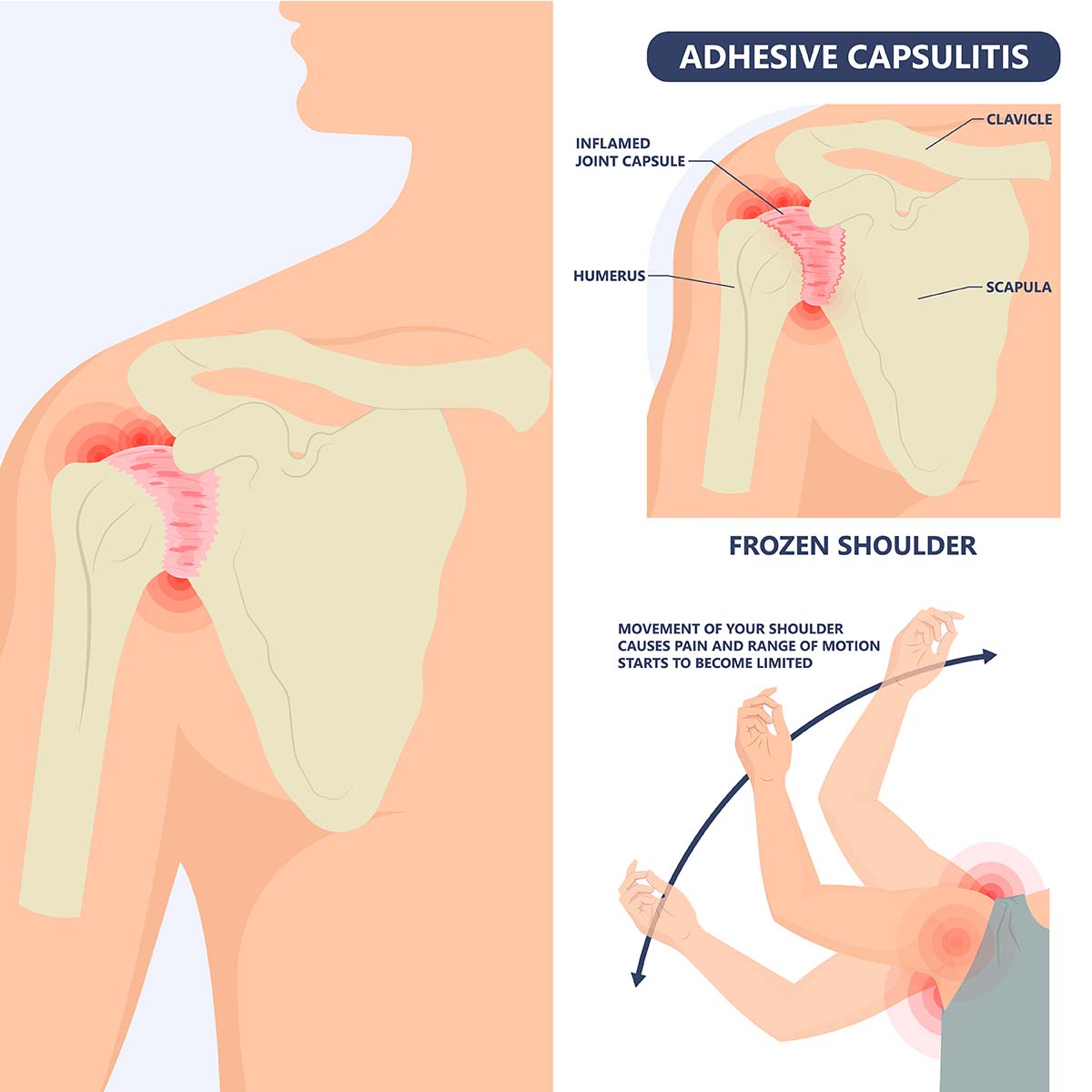
Frozen shoulder


Overview
If you are experiencing shoulder joint pain and stiffness, you are having a condition called frozen shoulder or also called adhesive capsulitis. This condition begins to have symptoms gradually and worsens over time until it resolves within a year or three.
Immobility of the arm from a medical condition recovery such as post-stroke or after a procedure like undergoing a mastectomy increases the risk of having a frozen shoulder.
Recurrence of frozen shoulder in the same side is less common, although the opposite shoulder may develop the same condition.
Symptoms
There are three stages of frozen shoulder and each of these stages can last for months.
- Freezing stage. The range of motion of the shoulder becomes limited and any movement results to pain.
- Frozen stage. At this stage, the pain can be less but the shoulder movement is difficult because it has become stiffer.
- Thawing stage. This stage shows an improvement in shoulder motion.
The pain can get worse in the evening which affects the quality of sleep in some people.
Causes
Frozen shoulder happens when the shoulder’s capsule which encases the tendons, ligaments and bones thickens and tightens around the shoulder joints, which results to movement limitation.
The reason is uncertain, but it is more common in diabetics or people who needs to immobilize their shoulders for a long time (e.g. arm fracture or post-surgery condition).
Risk factors
The following may increase your risk of having a frozen shoulder:
- Age and sex. If you are 40 years old or more, especially if you are a woman, you are most likely to develop a frozen shoulder.
- Inability to move or reduced movement. A long period of immobility or reduced movement of the shoulder poses a higher risk of developing frozen shoulder which can be caused by:
- Rotator cuff injury
- Fractured arm
- Stroke
- Surgery recovery
- Systemic diseases. The following diseases increases the risk of having frozen shoulder:
- Cardiovascular disease
- Diabetes
- Tuberculosis
- Parkinson’s disease
- Hyperthyroidism
- Hypothyroidism























